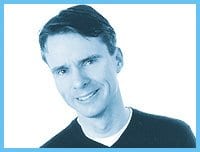James Lee Burke, one of the USA’s best-known mystery writers, writes absorbing stories packed with sin, redemption and moral ambiguity. But being a genre writer with a clear sense of audience expectation, he never pushes the ambiguity too far. He always makes the identities of his heroes and villains perfectly clear and he knows just how to do it. In one of his more recent books, Purple Cane Road, Burke establishes a villain’s credentials with a few quick allusions to contemporary social anxieties.
Not only is the nasty man a state executioner who gloated over his victims’ fates, he is also that contemporary icon of evil, a paedophile.
From Law And Order to the British crime series Trial And Retribution, the villainous paedophile is everywhere. Although studies indicate that true paedophiles are relatively rare, and violent paedophiles even rarer, the paedophile has become contemporary society’s number one villain of choice.
If the global criminal mastermind was the ’60s villain of choice (think Goldfinger) and the serial killer belonged inescapably to the ’80s (Silence Of The Lambs), the paedophile is ours.
In Canada the hysteria is such that concern over seldom-seen kiddie porn has reached front-page proportions. In the USA, the hysteria is such that one well-known author wrote a lengthy New Yorker article defending a mother’s right to derive sensual pleasure from holding her kids. The fact that she even had to explain herself says volumes about the current levels of fear and confusion.
Underneath it all, presumably, lies a widespread anxiety about sex and family and age. In a culture that demands the old look young and the young act old, it’s perhaps inevitable that we would centre our anxieties on a bogeyman who breaks age-related taboos.
In the ’70s and ’80s, the great psycho-social menace was incest. In films like Chinatown and books like Sylvia Fraser’s My Father’s House, the great horror at the root of the story was often some variation on intra-family sexuality.
Now we talk about incest without mentioning it, usually by sweeping it under the great, blurred rubric of “abuse,” a term that can mean anything from violence to insults to inappropriate sexual conduct.
Blurring our definitions not only takes away from the very real pain of people who have actually been abused, it demonizes sexuality in general. Far too often the word abuse is used to denote any sexual activity of which the viewer does not approve.
Ditto for “paedophile.” By definition, a paedophile is someone who’s attracted to pre-pubescent children, and yet the mainstream press routinely uses the word to describe people having sex with teenagers above the age of consent (currently 14, 18 for anal sex or if the person is in a position of authority). At the very least, this is confusing. At worst, it fosters an atmosphere of fear and danger in which the political right can curtail sexual information and expression, usually to the detriment of the most isolated and vulnerable members of society, namely gay kids.
One of the most vocal opponents of the politics of fear is New York writer Judith Levine. In her controversial new book Harmful To Minors: The Perils Of Protecting Children From Sex, Levine argues that our approach to youth sexuality is often misguided. By concentrating on exaggerated dangers like paedophiles, we miss out on the real dangers confronting kids, like AIDS, unwanted pregnancy and sexual violence.
To develop normally, kids need the chance to explore sexuality with relative safety. For that they need education, information, respect and support.
There are two things to remember when dealing with childhood sexuality, Levine told Salon magazine: Young people are weaker than adults, and need protection, but they’re also sexual beings capable of making autonomous decisions about sex. The law needs to reflect the tension between those two poles. “A balance needs to be struck between respecting kids as sexual beings and protecting them from exploitation,” Levine told the New York Times.
Sex per se is not the problem. It’s the conditions under which kids have sex. By depriving them of information and roping them off behind age of consent laws, we only inhibit their development. The criminal law, Levine told Salon, “is really a primitive instrument for trying to figure out how young people can have relationships of true consent.”
Levine’s book only reaches bookstores this month but it’s already controversial. A Republican politician has pressured the book’s publishers, the University Of Minnesota Press, to cancel publication. But Levine’s point remains. As novelist Jane Rule once wrote, “You can’t teach kids to say ‘No’ unless you also teach them to say ‘Yes.'” And you can’t say ‘Yes’ in a climate of fear.

 Why you can trust Xtra
Why you can trust Xtra


